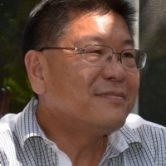Learn about our project philosophy, past and present team members, and other resources that have enabled us to develop this project over the years.
We began this project to compile a history of the University of Toronto Scarborough, from the campus’ opening in 1964 to the present day. However, we quickly discovered that this history is anything but singular; it instead consists of countless individual stories, pieced together through archival research, local outreach, and oral history interviews. While such stories allow us to better understand the present condition of our campus, they also push us to confront the more difficult aspects of life in our community, including, for example, the history of settler colonialism in the area and the ongoing discrimination to which Scarborough has been subject due to its largely immigrant population. In doing the work of collecting and preserving these stories, we hope to develop a more honest and fair picture of UTSC’s place in both the Scarborough community and the higher education landscape in Canada at large, and thereby push the boundaries of what it truly means to write an “institutional history”.
Our Aims
To craft an institutional memoir of UTSC in order to better understand ourselves and the variety of complex narratives that make up the life story of our campus.
To preserve the oral histories collected in an accessible digital archive intended for public education and research.
Our Commitments
To challenge what we think we know about UTSC and its history.
To include as many narratives as possible and recognize the importance of each participant’s lived experiences, acknowledging that, in the context of institutional history, individual memories have meaning.
Our team is made up of a talented and enthusiastic group of faculty, students, and alumni. They are researchers, authors, creators, and colleagues without whom none of this would be possible. Current team members, as well as their professional contact information, can be found here.

Christine Berkowitz
Principal Investigator
chris.berkowitz@utoronto.ca

Leslie Chan
Contributing Investigator
lesliekw.chan@utoronto.ca

Amena Ahmed
Researcher
amena_ahmed@outlook.com

Maria Bacchus
Researcher
m.bacchus@mail.utoronto.ca

Asmaa Helali
Archival Assistant
asmaa.helali@mail.utoronto.ca



Rafiyaa Mubashshira
Archival Assistant
r.mubashshira@mail.utoronto.ca
We are also indebted to the many students who have made this project a success over the years. Their names and contributions are listed below.
Nancy Lee
Coordinator, Digital Resources and Oral History Preservation, 2019-2024
Azreen Sikder
Researcher, 2019-2022
Edward Dunsworth
Project Coordinator, 2018-2019
Maherah Sadaf
Archival Assistant, 2020-Present
Hsin Yu (Madgen) Liao
Archival Assistant, 2019-2020
Danielle Milankov
Archival Assistant, 2019-2020
Amelia Ainsworth
Project Coordinator, 2020-2022
Researcher, 2019-2020
Jennifer Tran
Researcher, 2019-2021
Kathleen Lacy
Archival Assistant, 2023
Stefania Virgilio
Archival Assistant, 2023
Inyoung Choi
Archival Assistant, 2023
Naailah Patel
Co-Coordinator, Digital Resources and Oral History Preservation, 2022
Researcher, 2020-2021
Mariam Mian
Researcher, 2020
Karisa Yuet
Archival Assistant, 2022
Irish Bonon
Archival Assistant, 2021
Tammy Nguyen
Archival Assistant, 2022-2023
This project would not have been possible without the foundational work of the co-founders of the Scarborough Oral History Project(SOHP) and co-Principal Investigators of the 50th Anniversary Legacy Project The Stories of UTSC – Connie Guberman, Associate Professor, Teaching, Women’s and Gender Studies, Department of Historical and Cultural Studies; Ahmed Allahwala, Professor, Teaching, City Studies, Department of Human Geography; and Adon Irani, founder of At Risk Media and formerly with the University of Toronto Scarborough Centre for Teaching and Learning. The oral history collection connected to this site resides on the platform designed by this group for the SOHP and many of the oral histories in The Stories of UTSC collection were collected in this earlier phase and curated again here.
Technical design, support, and administration of the Scarborough Oral History Project and Stories of UTSC digital collections is provided by Kirsta Stapelfeldt and her wonderful team in the UTSC Digital Scholarship Unit, housed in the UTSC Library.
The History of UTSC: The Struggle for Identity project website was originally designed by Parita Patel and developed by Matthew Lefaive through the University of Toronto’s Critical Digital Humanities Initiative (CDHI) UX Design for DH Accelerator program. The website was redesigned and redeveloped by Amena Ahmed.
Funding for this project was generously provided by the UTSC Vice Principal Academic and Dean, William Gough and for the launch by the UTSC 60th Anniversary Legacy Fund.
We are also very grateful for the assistance of the many archivists in the University of Toronto Library system, including: Tanis Franco with the UTSC Library; Tys Klumpenhower, Danielle Ansovini, and Marnee Gamble with the University of Toronto Archives and Records Management; and Rick and Meredyth Schofield of the Scarborough Historical Society.
The UTSC campus is physically located on the banks of the Highland Creek in the northeastern region of Toronto, in the former municipality of Scarborough. The instructional and administration buildings sit high on a plateau overlooking Highland Creek and the lands in the valley below are home to sports playing fields and Miller Lash house (formerly a private home and later Principal’s residence, now a conference and meeting centre).
“We wish to acknowledge this sacred land on which the University of Toronto Scarborough operates. It has been a site of human activity for 15,000 years. This land is the territory of the Huron-Wendat and Petun First Nations, the Seneca, and, most recently, the Mississaugas of the Credit River. This territory was the subject of the Dish With One Spoon Wampum Belt Covenant, an agreement between the Iroquois Confederacy and the Confederacy of the Ojibwe and allied nations to peaceably share and care for the resources around the Great Lakes.
Today, the meeting place of Toronto is still home to many Indigenous peoples from across Turtle Island and we are grateful to have the opportunity to work in the community, on this territory.”
The above statement is a compilation of language first revised by the Elders Circle (Council of Aboriginal Initiatives) in 2014 and then further revised and adopted in 2016 by the University of Toronto in consultation with First Nations House and its Elders Circle, some scholars in the field of Indigenous students, and senior university officials.
We believe that land acknowledgements are a critical step towards realizing our commitment to Truth and Reconciliation as a nation, as an institution, and as individuals. Although the practice is often criticized as purely performative in nature, we hope that, through this public act of acknowledgement and our actions in this project, we can facilitate and co-create a historical narrative about this place that will contribute in a small way to permanently uncovering what has been traditionally an ignored history. The stories told of this land and our connection to it are complex and we are committed to learning as much as we can about that complexity from stories and storytellers both within and outside our institution.
Please visit our Resources page for further information on the philosophy and methodology of The History of UTSC: The Struggle for Identity project.
Additionally, we welcome you to reach out to us with project-related inquiries via email at: info@historyofutsc.ca.